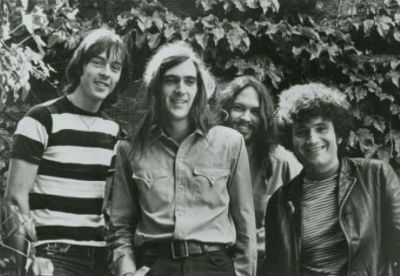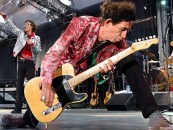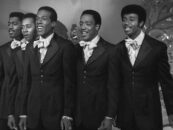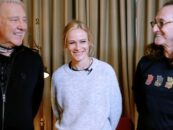
Quicksilver Messenger Service in an early publicity photo (l. to r.): Gary Duncan, John Cipollina, Greg Elmore, David Freiberg
Sometimes waiting is the hardest part. Quicksilver Messenger Service, originally formed in 1964 to back singer-songwriter Dino Valenti, was one of San Francisco’s original psychedelic bands, but committed fans and the merely curious didn’t get an album from the group until May 1968. In part this was, as guitarist-singer Gary Duncan told an interviewer, because, “We had no ambition toward making records. We just wanted to have fun, play music and make enough money to be able to afford to smoke pot.”
To everyone’s benefit, that lack of ambition and herbal-life preference combined with years of playing and professionalism to produce one of the era’s best records, whose sheer musicality shines as brightly today as it did more then a half-century ago.
Initially a five-man band, by 1968, when they signed with Capitol Records–one of the last of the classic-era San Francisco bands to ink with a major label–QMS was a taut quartet, its sound defined by Duncan and John Cipollina’s twin guitars, bassist David Freiberg’s (and Duncan’s) vocals and Greg Elmore’s drumming. (Valenti, jailed on drug charges, wouldn’t rejoin the band until his release in 1970. Another early member, guitarist Jim Murray, had dropped out before the debut album was recorded.)
But the band’s eternal weakness persisted: its members hardly wrote. Which, curiously, became one of their strengths, as it obligated them to transform and customize cover material into interpretations they would come to own (see their vivid reimagining of Bo Diddley throughout their sophomore LP, Happy Trails).
Here, Hamilton Camp’s folkie protest “Pride of Man” turns into a chilling apocalyptic rocker.
“Gold and Silver,” which began life as a jam on Dave Brubeck’s “Take Five,” becomes a fiercely swinging dual-guitar riff-swap that presages later Allman-Betts workouts.
Related: Looking back on the Electric Flag’s 1968 debut
Among the album’s great reveals: It discloses a rock ’n’ roll band that’s not only conversant with jazz but also at ease with—and adept at—pop music. Valenti’s “Dino’s Song,” melodic, perfectly crafted and irresistibly effervescent, just missed being a top 40 hit.
On “It’s Been Too Long” (credited to QMS manager Ron Polte), Cipollina tears off a wiry, spiraling solo and Freiberg punches through the fade with buoyant Del Shannon-ish “whoa-whoa-whoa’s” (his “Runaway” was part of their early repertoire).
Not surprisingly, the set’s two band-generated songs lean heavily instrumental. “Light Your Windows” partly recalls Fred Neil’s breezy “Coconut Grove,” though its real draw is the stinging electric filigree Cipollina applies throughout the track.
The 12-minute closer, “The Fool,” is the obligatory long song all San Francisco bands featured, but it’s hardly an aimless sprawl. Instead, it’s a watertight collection of mini-suites that deftly traverse all sorts of musical space, from pastoral acoustic interludes to vertiginous gothic assaults—interspersed with “mystical” lyrics straight outta hippie philosophy.
Related: 10 great “live-at-the-Fillmore” albums
If the purpose of a debut album is to show ’em what you can do, Quicksilver Messenger Service is an unqualified success. It shows a group making the most of what it had to forge a style that remains utterly unique. Harvey Brooks and Pete Welding produced, along with Nick Gravenites (those are the Electric Flag horns you hear on “Pride of Man”).
Bonus video: Watch Quicksilver perform “Dino’s Song” at the Monterey Pop Festival in 1967
The album, and the band’s other recordings are available here.






4 Comments so far
Jump into a conversationI love this album. I bought it when it was first released and later got a copy of the CD. QMS are so underrated, as is this album. I saw them a number of times but one that stands out is at the Sound Factory in Sacramento, CA (1968). I can close my eyes when I am listening to Gold and Silver and I am transported back in time at that concert. It was honestly a magical time for music. QMS was one of my favorite bands.
Unfortunately I was too young to fully embrace the SF sound, but, but luckily got to see QMS in Houston with ZZTop opening the show, and The Allman Brothers Band the middle act and I believe their first large concert tour. I pretty sure it cost $5 for a general admission ticket! Don’t ya miss those days?
Dino did not sing on this album. He was in jail. David Freiberg is the lead singer.
Nowhere in the article does it claim Dino sang on this album.